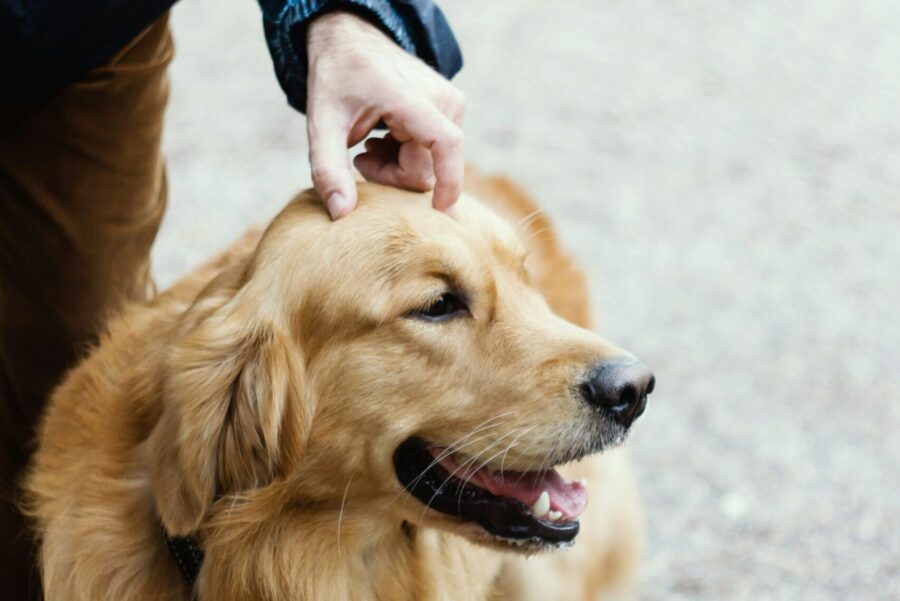How Do Dogs Affect Your Brain?
There’s evidence the nickname “man’s best friend” is well earned, as research has shown that dogs can improve people’s moods, reduce blood pressure and lower levels of the stress hormone cortisol. Gazing into your dog’s eyes can even boost oxytocin, the “love” hormone which helps you bond with another, just as oxytocin is released when a mother looks on her child.
But a new study out of South Korea has identified what exactly happens in people’s brains as they interact with dogs, according to NBC News. As it turns out, how you interact makes a big difference.
Thirty people participated in a study where they wore a headset of electrodes to measure their brainwaves as they interacted with a poodle named Aro in a variety of ways. Activities included greeting, playing with, feeding, massaging, grooming, photographing, hugging, and walking her for three minutes each.
What happened to people’s brains? When participants walked the dog, they felt more relaxed. Brushing the dog improved their concentration. And playing with her improved boosted relaxation and concentration.
“Previous studies of the potential benefits of animal interactions often take a holistic approach, comparing people’s mood or hormone levels before and after spending time with a dog,” said Onyoo Yoo, the study’s author and a researcher at Konkuk University in South Korea.
“It is a significant finding that engaging in certain activities with dogs can increase specific brain activity,” Yoo added.
Your brain produces five different kinds of waves. Alpha brain waves indicate a state of wakeful rest, like when you first get up in the morning but you’re not yet engaged in difficult mental tasks. When people took Aro for a walk in the park or played with her using squeaky toys, their alpha brain waves increased – indicating a state of increased calm, rest and relaxation.
Beta waves show your brain is “wide-awake, alert, and focused on tasks,” engaged in activity and making decisions. When participants played with Aro, brushed out her coat, or gave her a massage, their beta brain waves increased – showing their concentration was rising without a rise in stress.
And all eight different activities helped participants feel less stressed, tired, and depressed.
Therapy dogs are currently used to help people in countless ways – veterans with PTSD, people experiencing anxiety, children who have experienced trauma, and families in hospitals.
Jennifer Dobkin, who manages an animal therapy program for medical patients and staff called UCLA People-Animal Connection, can attest to how interacting with dogs enables people to relax or concentrate on a task.
“If it’s a staff member that’s been stressed and having a bad day, you can physically see their posture relaxes. They smile. They’ll say things to us like, ‘You have no idea how much I needed this,'” she said.
She also notes how children recovering from sexual abuse prefer to pet a therapy dog when talking to investigators. “Our dogs get called to those situations to help the kids cope with talking about a really, really stressful situation that happened to them,” she said. “I think it does help them concentrate. It just provides a sense of comfort.”
This new research can help tailor activities in dog therapy programs to assist people where they need it most.
Read the full article here.
Bendix, Aria. “Playing with dogs helps people concentrate and relax, brain recordings show.” NBCNews.com, 13 Mar 2024, https://www.nbcnews.com/health/health-news/dogs-help-people-concentrate-relax-brain-study-rcna142973.
Photo by Maria Lupan on Unsplash



